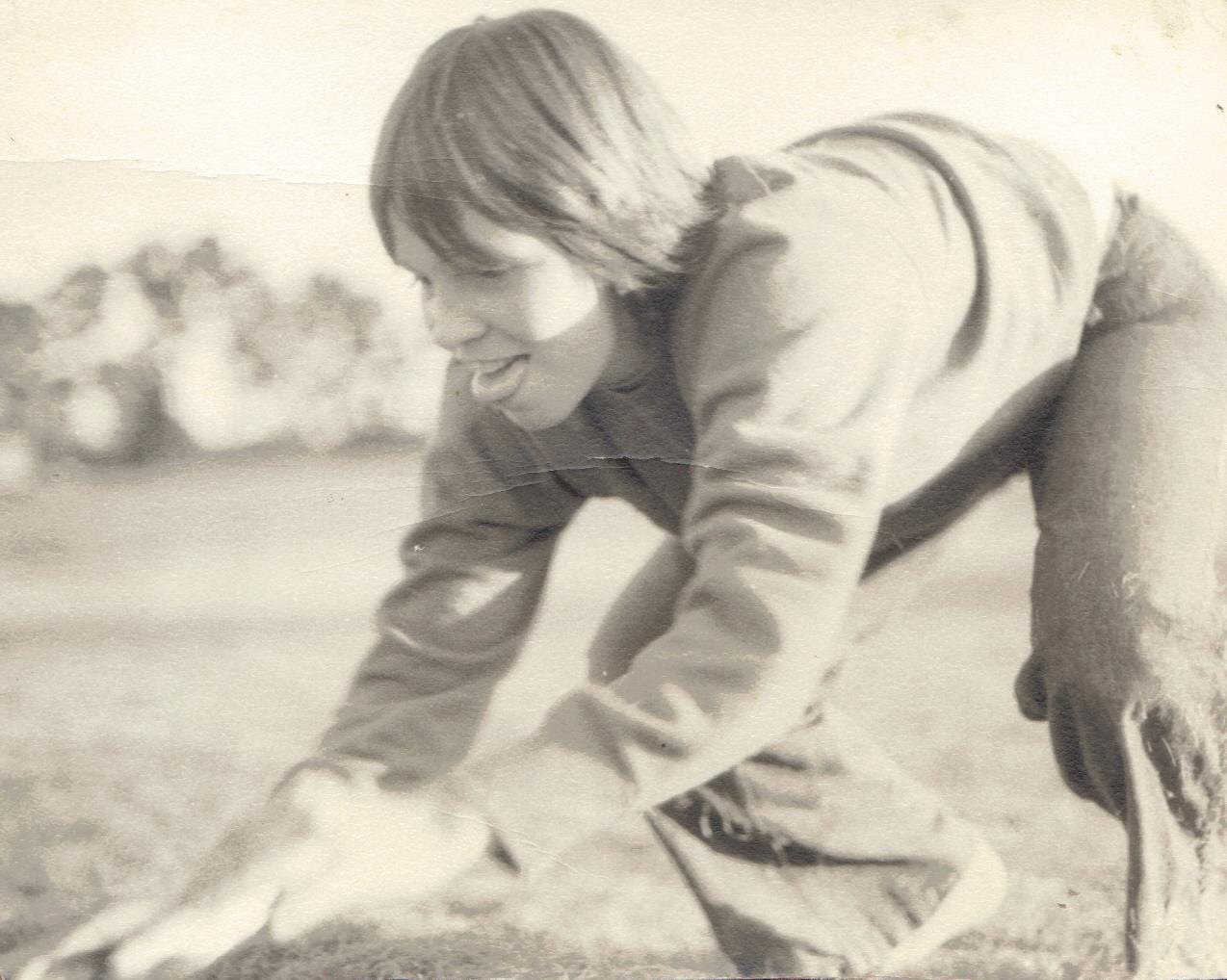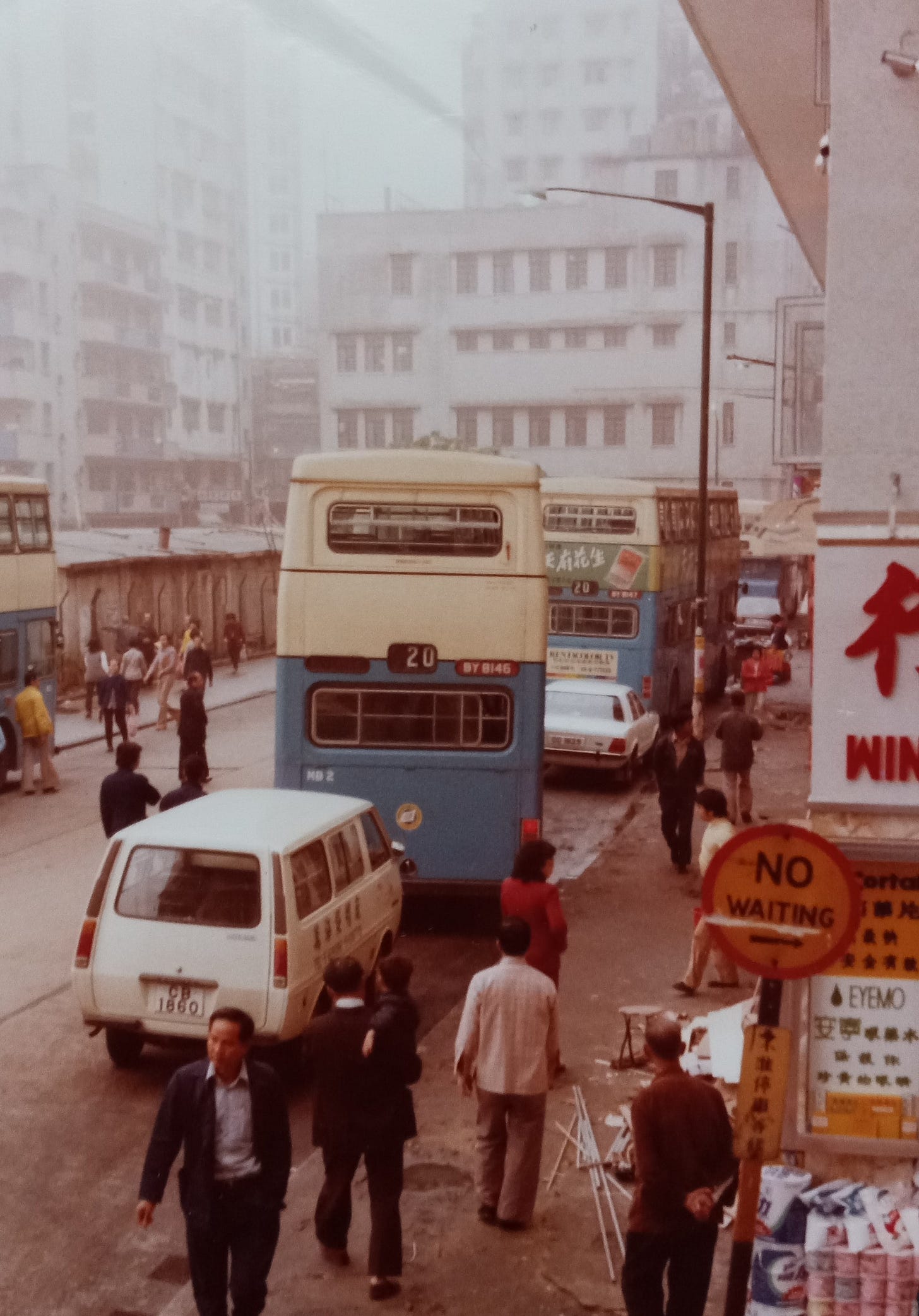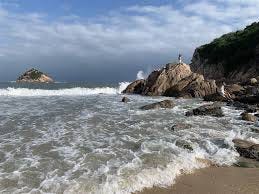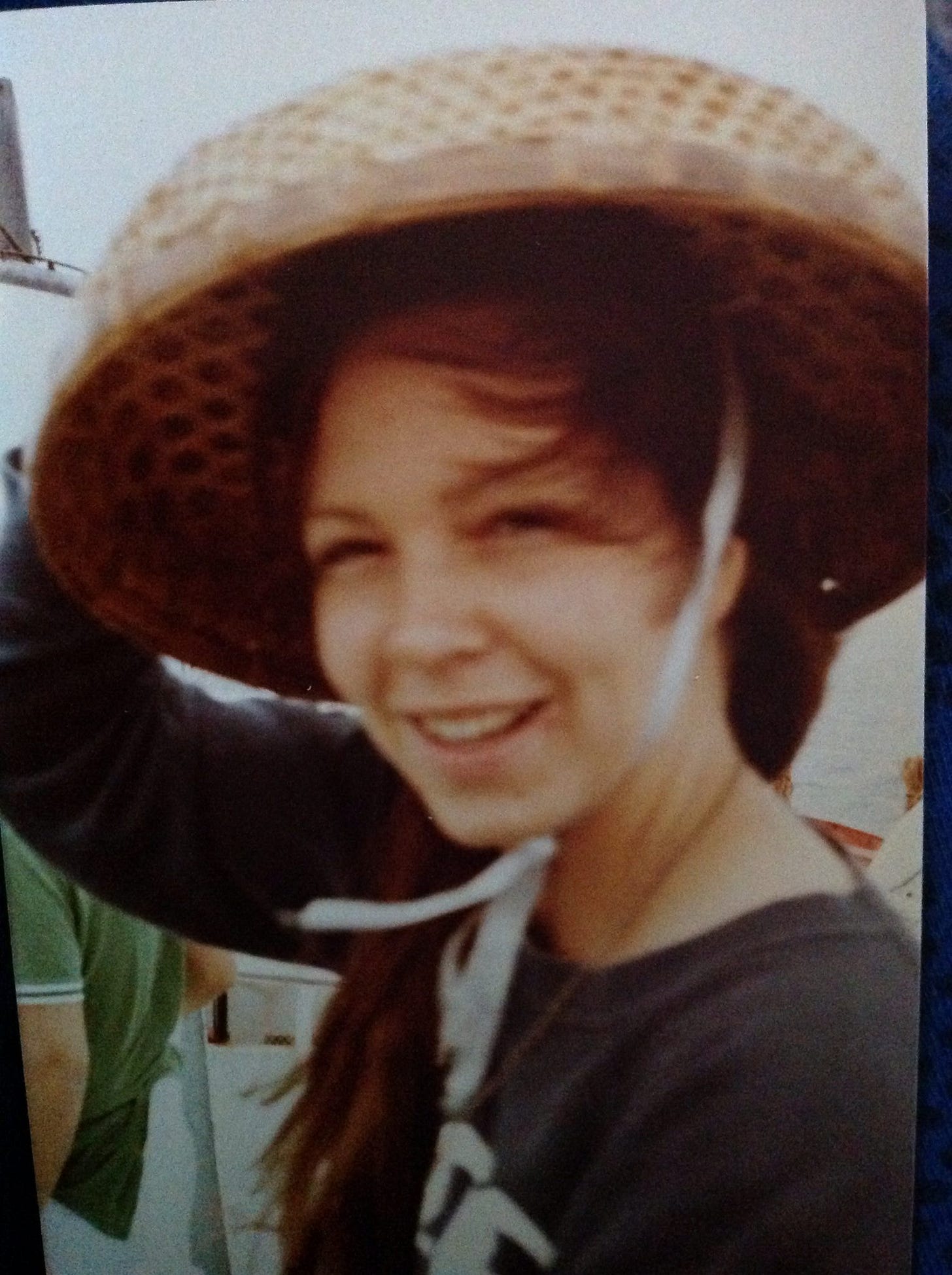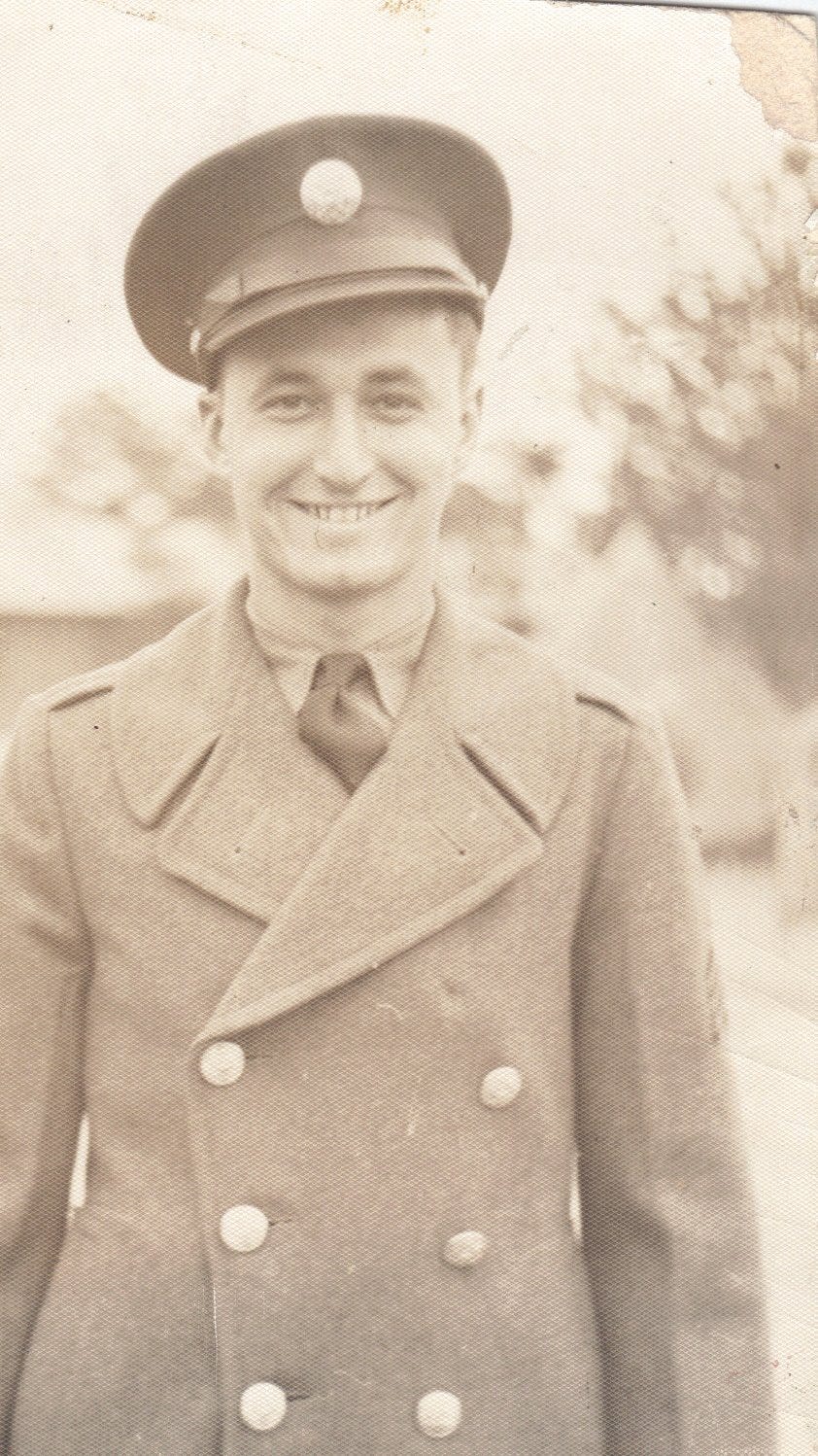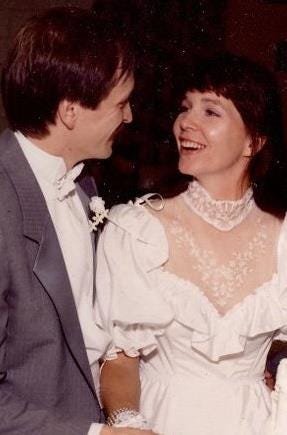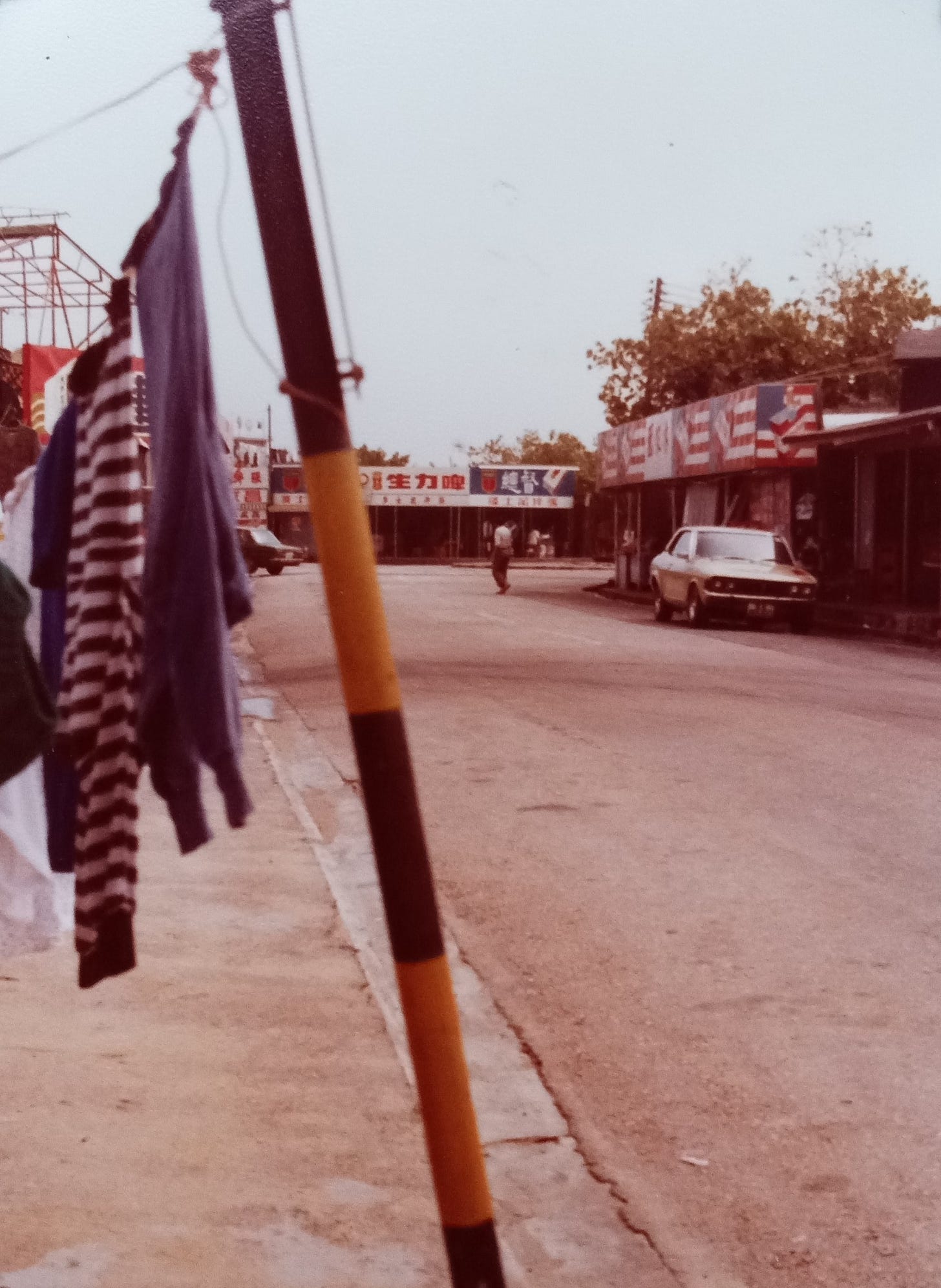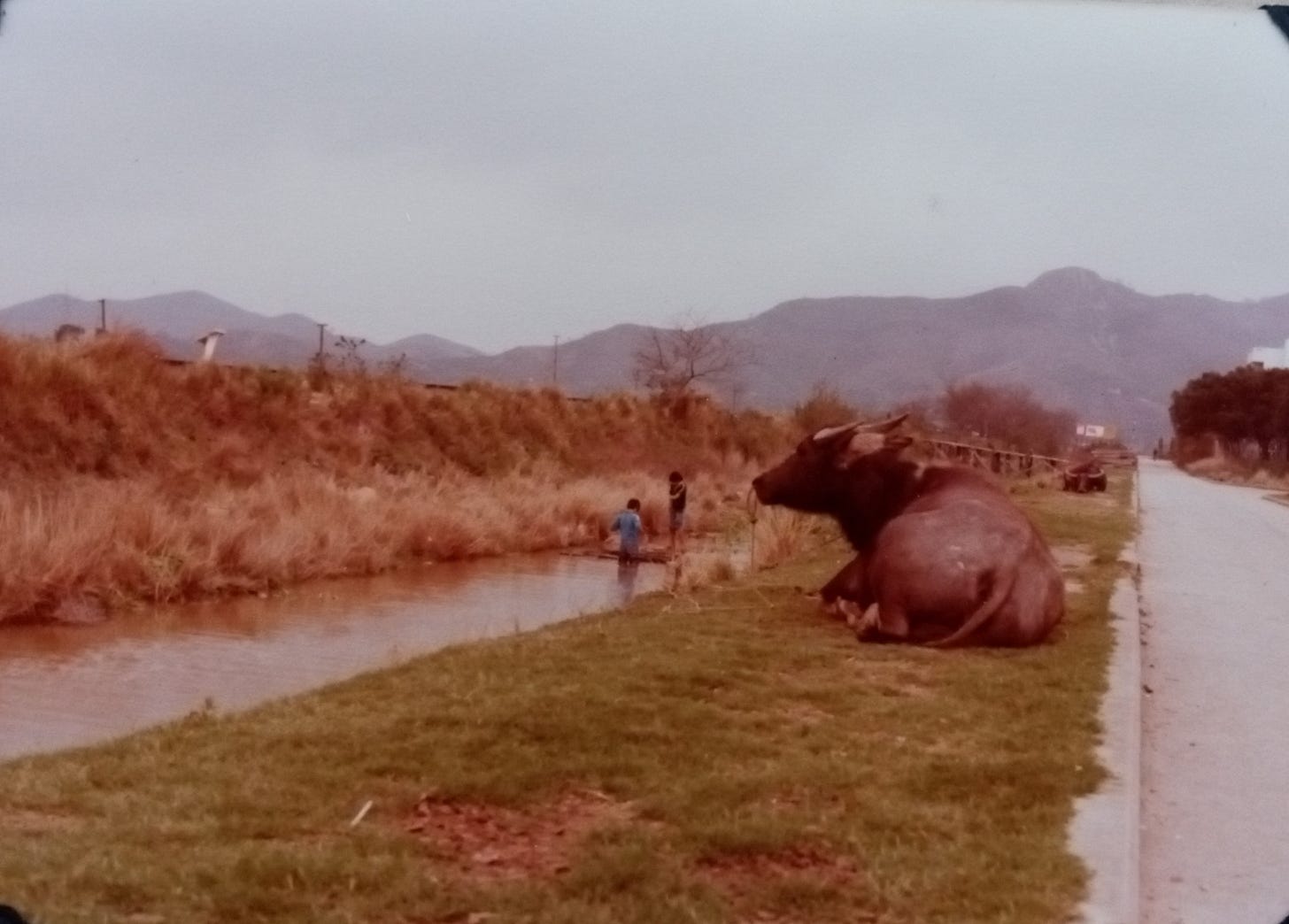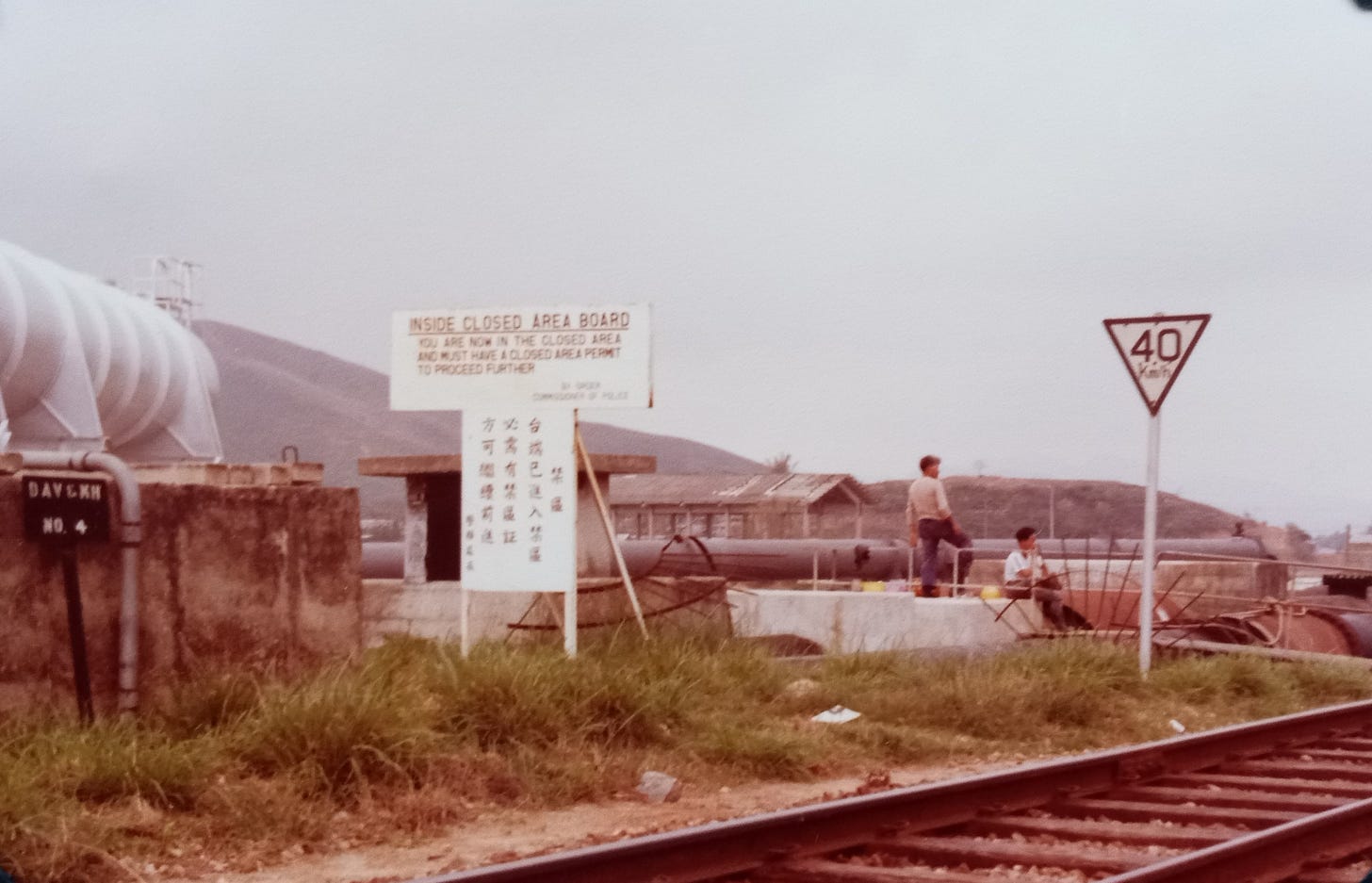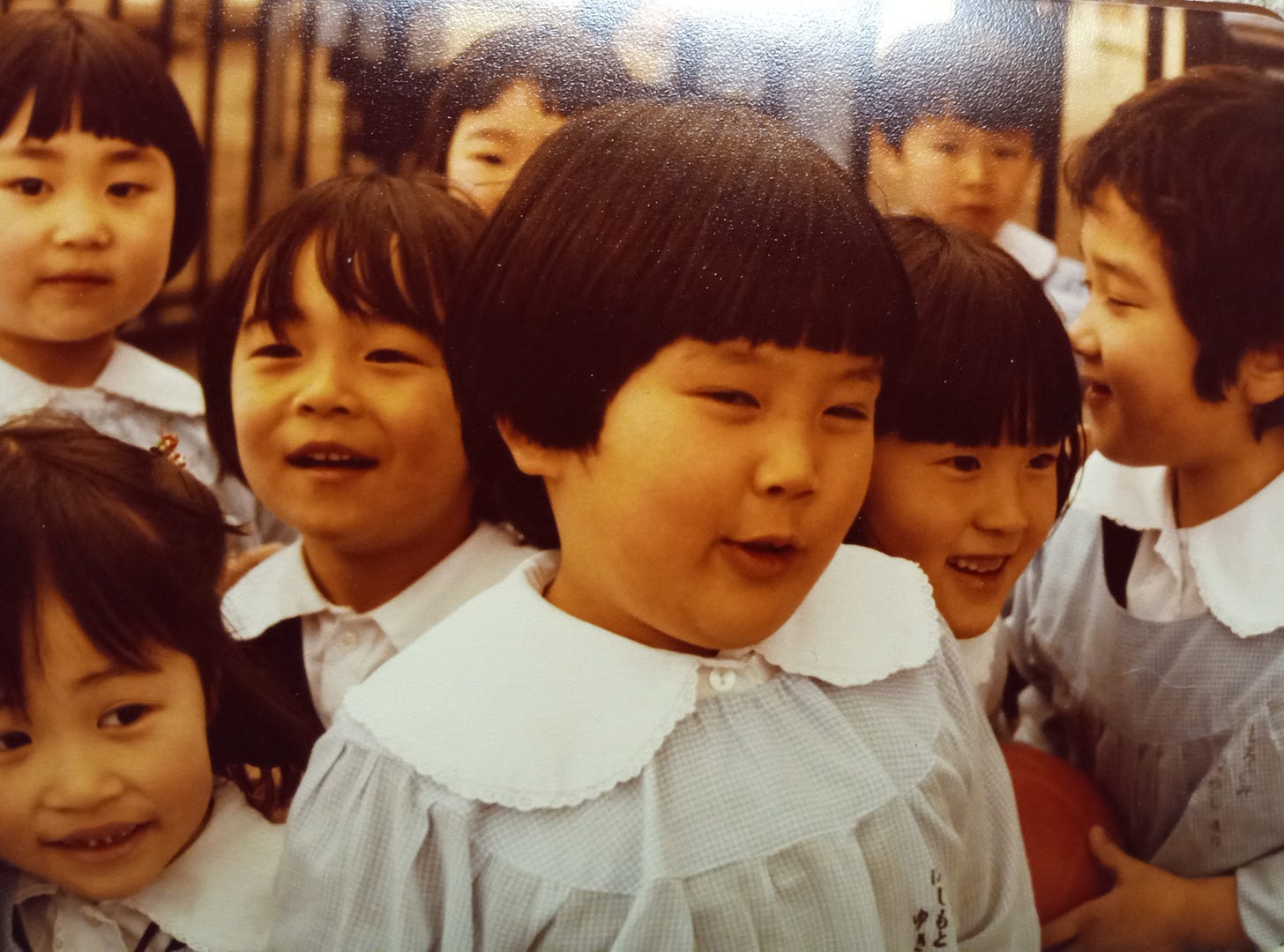… AROUND THE WORLD IN 80 DAYS 1980
(Carrying on from last week’s issue, we continue to explore Hong Kong)
Our second day in Hong Kong was one of relaxation for me and my roomie, Lucille Shepherd. A major portion of the ship’s student complement had left for an optional (read: costly) in-port excursion to Canton, China, which suited us fine.
Both Lucy and I were one of nine siblings and quick to appreciate elbow room when it presented itself, but we were also okay with being parts of larger clans. People always seemed so amazed to come across members of large families, so it was usually a good opening for starting conversations.
For us it was also an opening for a little club—a club in name only, really—one we started onboard the Universe after encountering a few more members of nine-sibling families. One was the seventh son of a seventh son: a genuine warlock!
But that Friday, March 7th 1980, was a day just for me and Lucy: a club of two.
Actually, we had a lot of days like that.
And on that particular one the relaxation we enjoyed came in the form of a little bit of shopping, an average amount of bussing about new environs, and a whole lotta lying around on a beach.
WATER WATER EVERYWHERE & NOT A DROP TO DRINK
Lucy was already familiar with sand, but not the kind that came with water; she hailed from Arizona. Me? Pennsyltucky. Sure, I’d been raised within decent reach of the eastern seaboard, but I grew up in a family that couldn’t afford beach vacations.
The first time I saw a beach I was around 14; I think it was somewhere on the Delmarva peninsula, a camping excursion a few older siblings decided to adventure out on (ones who could already drive), and I tagged along.
Maybe Tagalong should have been my nickname, instead of Mutt (Okay, I loved dogs—so much that as a tot I spent a lot of time pretending to be one, including eating out of a dish on the kitchen floor). What can I say?
I guess the point I set out to make was that, despite living on the ocean for over a month by then, our attraction to an oceanside day was far from sated. So off we set, daypacks stuffed with our bathing suits and towels, with some Hong Kong cash, our cameras, and a map.
Our first destination was Shaukiwan.
If you type Shaukiwan in a search engine, you’ll get pictures like this:
But that’s today. The Shaukiwan we saw looked more like this:
44 years can make a huge difference. But Lucy and I had gone there, primarily, since it was on the way to Shek-O Beach, which looks like this:
And this:
Oh yeah. Much better. More the style of non-flockers like us, eh?
Sadly, if you check out that Wikipedia link on Shek-O, above, the entirety of its history seems to be comprised of a catalogue of drownings.
For our part, we spent several hours there—much of it snoozing in the hazy sun and apparently none of it in the water. We had probably been forewarned. But we did walk and frolic along the water’s edge where the “cool, cool water” I wrote about in my journal “felt so good to my feet.”
We also jotted in our journals and ate the bakery goodies we’d bought enroute.
BACK TO THE MADDENING CROWDS
All too soon it was time to catch the bus back to Shaukiwan where we spent an hour exploring and shopping. My fav find was “real coolie hat for 80₵,” I wrote later.
I also spent quite a bit of time trying to convince various shop owner to fork over a Chinese New Year poster (not for sale), but no one would, which wasn’t to say I didn’t walk away empty-handed.
Yes, it was a good thing I’d bought that second trunk.
Other purchases were catalogued in my journal as well: matching blue silk dragon kimonos and a set of bamboo hangers for my sister, Kqueen, and her hubby; a short kimono for my friend, Gonzo (Jo Fenello), back at Seton Hill College; and something I called a “Kung-fu” jacket for myself.
Then it was back on the bus and over to the Ocean Terminal (where the Universe was docked) by ferry.
There, Lucy and I snagged a couple of oranges from the ship’s dining room and retreated to our cabin for a respite. We sat on our top bunks across from one another and dined on the oranges and some French bread we’d bought, spreading it thick with Nutella.
“YES!” I declared in my journal happily. “I’d found Nutella after all these years. I love that shit! Mmmm.”
Nutella hadn’t yet come to America back then. I’d first encountered it in France four years earlier when I was a foreign exchange student in Le Havre—the port city in Normandy my dad had been in as a soldier in WWII.
Plying me with copious amounts of Nutella was one way my French maman tamed the savage beast that was her American daughter—the daughter she later kicked out (but that’s a topic for an entirely different series of misadventures). Even after I was back in the States she send me jars of Nutella for a while.
Maybe it helped her assuage any feelings of guilt. Just compensation takes many forms in the minds of humans.
So anyway, now you know why finding Nutella in Hong Kong and sharing its wonders with Lucy was a delight I couldn’t pass up. It would take decades before I had my fill of Nutella once it finally showed up in the U.S.
(Whispering: Here’s one way I liked it: whole grain tortilla rollups spread with Nutella and jammed with fresh blueberries—delicious with a big glass of cold almond milk!)
Chocolate hazelnut obsessions aside, Lucy and I ventured back out after a rest to do some more shopping closer to the ship. This time? The “Night Market.”
For myself I purchased a delicate sandalwood fan, and for our geology prof, Dr. Nototny, Lucy and I bought a lighter emblazoned with the image of a jack from a deck of cards.
There was probably some meaning behind the choice, but it’s long since been lost to the years, since I didn’t write any more details about it in my journal.
As for that fan, like many of the items acquired while traveling around the world, I kept it for years and years. I still had it twenty years later when I was mom to a young Civil War drummer boy and had to dress up in period clothing to cart him about from one re-enactment to another. That fan helped keep me cool in hoop skirts.
I still have some Civil-War dresses, that hoop-skirt, and a bonnet or two—but I’ve long since passed along that fan.
OFF WE GO INTO THE WILD RED YONDER
The next morning, Saturday, Lucy and I got going about 10:00 AM, setting out again into the wilds of Hong Kong on our own. It would prove to be quite a different kind of day than the day before.
Our plan? Try to sneak into China.
We were too cash-poor to travel to Canton with the rest of the student body in a more conventional way, so we figured, what the heck, right?
We caught a bus to the New Kowloon (train) Station and boarded a train headed for the Communist border. $3.20 in Hong Kong dollars (64₵ in USD) purchased us an hour’s ride out of the bustling city and into the countryside, described as “pretty and pleasant” in my journal.
The further out we went, the more raggedy the clothing of patrons boarding the train, and livestock was obviously not restricted. One lady sat across from us with a chicken in her lap and smiled congenially, telling us something we couldn’t understand.
Maybe she was telling us it was her dinner menu for that night, or maybe she said it would provide her family with eggs. Whatever she said, she was happy with her chicken, that was for sure.
The summer before, on a train in Lancaster, PA, a man had sat beside me with a fish in his lap. I know that sounds like the start of a lewd joke, but it isn’t. He’d bought it at the Central Market and was headed to Philadelphia to cook it for his girlfriend.
That isn’t even the strangest part of the story.
First, why you’d buy a fish in Lancaster and cart it to Philadelphia, when you could get a far fresher catch right there in the City of Brotherly Love, I can’t say—I’m sure I asked and got a reasonable answer I can no longer recall.
But what I do recall is that after a few awkward moments of gee you look familiar passing back and forth between us, recognition set in.
It was Bobby Craig, all grown up.
Bobby had been my childhood friend from down the block. Ostensibly, I went to his house to play with his sister, a year older than me, but it was Bobby I really went to see.
Let’s face it, “boys” games are a lot more fun. They always have been.
Bobby was a year younger. We entered the Lititz Halloween parade dressed up as Jack and Jill just so we could carry a large pail filled with freshly shucked corn kernels to throw at all the kids we didn’t like—and at some of the ones we did. It was damned heavy. After awhile we dumped it, leaving a considerable mound of yellow in the middle of Broad Street for people to ponder.
But that day on the train from Lancaster to Philly the only thing I was pondering was what a handsome fella Bobby Craig had become.
I wasn’t too jealous of his girlfriend though. I was headed to Philadelphia to visit my own fella—Dan, whom I mentioned back in this chapter—the first of three men I thought I’d end up marrying.
I’ll always be thankful I waited for what was behind door number three.
Now where were we? Ah yes. Hong Kong.
The furthest they would allow us to ride the train was Sheung Shui, then a region of impoverished village life as far as we could tell. Later in the 80’s the area would be developed and now looks more like this, but not so back then:
Time changes everything.
We tried to play dumb and stay on the train, but they came through and checked everyone’s papers. It would seem we reached the end of the line (for us) and were booted off, so we strolled the village streets.
We were surprised to come across a place that sold cans of TAB soda, and bought a few, then decided to see how far north we could walk till someone objected.
We merely wanted to know what the border looked like. Was all of China fenced off? Or could one walk in across open land between checkpoints? Mountains loomed in the distance, so we picked out a spot on one and headed for it.
We crossed the tracks and headed down a dirt path, soon coming to a newly paved road where an ox stood, eyeing our approach. I recalled my dad telling me a story of being chased by a bull when taking a short cut across a neighbor’s field, so I paused cautiously before seeing the ox was tethered by a ring through his nose.
I dunno. Maybe oxen don’t lumber after strangers, but I wasn’t wanting to find out. Not there, anyway, where we’d likely ended up in a ditch and never be found, the whole of Semester at Sea left wondering whatever happened to those two girls whose hobby was seeing how many pastries a human could withstand.
We began encountering more oxen as we walked on, all of them tethered, all of them recognizing us for the strangers we were and watching us with dark suspicion in their eyes.
Then we came to a fence, thinking perhaps we’d arrived at the border.
It wasn’t. Beyond the fence stood a conglomeration of shacks and clotheslines, the whole of it penned in and identified by a sign that read, “Temporary Housing Complex.” And beyond that, a haze had settled over the mountains, obscuring them.
“It was just a bunch of pavilions and cement,” I wrote in my journal of that strange encampment, adding, “Families apparently brought lumber & put up a new 4-wall shack under the roof & lived there. The allotted spaces were no more than twice our cabin size—about 12 x 12 feet.”
But the road had also turned out to be a dead end, so we doubled back to the tracks.
We ambled down a dirt road that paralleled the railway, passing houses on stilts and flooded fields that didn’t quite look like rice paddies but probably were. The people we encountered along the way were friendly, saying hello and bye as we passed—which seemed to be about all the English they knew, but still outstripped any Chinese I could utter in return.
A little further on we came to a clearing where a few guys entertained themselves flying remote control planes. For a short time we watched, but I later jotted in my journal: “… while it was neat to watch for a while, it stirred up visions of horror, of a time not so long past & of a time perhaps to come in our lives before long. We walked on.”
Abruptly the dirt path ended, forcing us to walk on the tracks, themselves, if we wanted to continue northward. Not far ahead a large sign loomed, informing us we were about to enter restricted land and that only people with special passes could continue.
We saw no barbed wire or fences, so assumed the border still lay ahead, and walked on. Beyond the sign were a pair of men whom we thought we might try to ask, but they began calling out in Chinese.
Maybe they were rail workers warning us it was dangerous to walk on the tracks.
Maybe they were looking for remote control plane that had gone down and wanted help looking for it.
What did we know? Not much.
Not, at least, till we realized they had rifles within reach. And certainly we knew a whole lot more—once we’d kept walking toward them and were shown the business end of a shiny Oh No You Don’t, American Dimwit.
Needless to say, we did an about-face.
THE LAST DITCH
We hadn’t been discouraged enough not to try a few more routes across open land, once we were out of their line of sight, but the flooded fields and numerous ditches made it an impossible task. If it could be done, it would take a lot longer than we had time available or lack of sense to pursue.
Tired, we sat on a footbridge over a ditch to rest before heading back.
The trains ran hourly and one was pulling in just as we were almost back to the station. Not wanting to wait around another hour, we took off running, hoping to catch it before it left the platform.
We also hoped we’d be able to pay onboard—there was no time to stop at the ticket booth.
We ducked under a roadblock and made a dash for the last car, reaching it just as the wheels started rolling. Laughing and gasping, we swung ourselves onto the steps, clinging to the handrail for dear life.
(Only when you’re dumb and twenty, folks. Only when you’re dumb and twenty!)
We’d trekked miles and miles that day—both by rail and on foot—and I later recounted in my journal, “We nearly got mowed down in the process, but we were safe onboard & nothing else much mattered. I zonked out most of the way, waking up at one stop & waving & saying “hello” to school boys in another train. Such giggles and fun.”
Anywhere in the world kids are always the best of humanity, and for a moment I was taken back to a day in Japan when we’d encountered a playground full of young students excited to meet us:
By late afternoon we were back at the ship, and after a brief respite were already set for a second attempt to venture where we didn’t belong. This time? The luxury liner, HMS Canberra, berthed next to our small, humble cruise ship long ago stripped down and refitted as a no-frills floating campus.
Be sure to tune in next week to see how that panned out, along with a few other sights and sounds of Hong Kong before you’re invited to head on with us to … Singapore!
_________________________
Thanks for joining me for another Monday morning visit.
Have you ever been to Hong Kong or China? If so, share a few of your memorable moments in comments below. Or here’s another prompt for a comment: have you ever tried to get into someplace you weren’t supposed to go? How did that turn out?
To wrap things up this week, I’ll leave you with a pair of recently dropped interviews—one podcast, one radio show—and news about my next author event.
Author/singer/songwriter, Demi Michelle Schwartz, interviewed me for her Literary Blend podcast a short while back and our episode (Chapter 37) dropped this past week. You can listen here.
Just prior, I was a guest on the Voices From Appalachia Radio Show where I was interviewed by writer Julie Becraft-Shehan. Our talk is archived (episode 68) here. I hope you check out both interviews!
Finally, I’d love for you to come by the Lititz Public Library in Lititz, PA, on Saturday, Nov. 2nd between 10:00 & 12:00 to say hello. I’ll be participating in their annual local author meet ’n greet, where you’ll also be able to pick up copies of Shay The Brave from sponsor Aaron’s Books.
Thanks again, and until we’re together once more … the very best of travels be yours!





